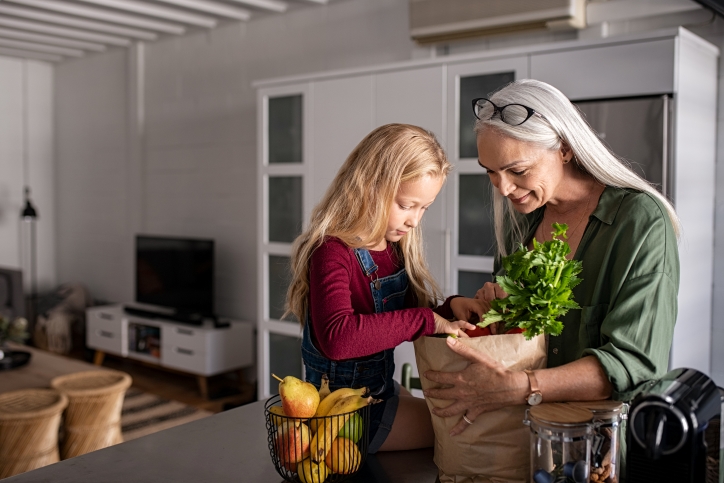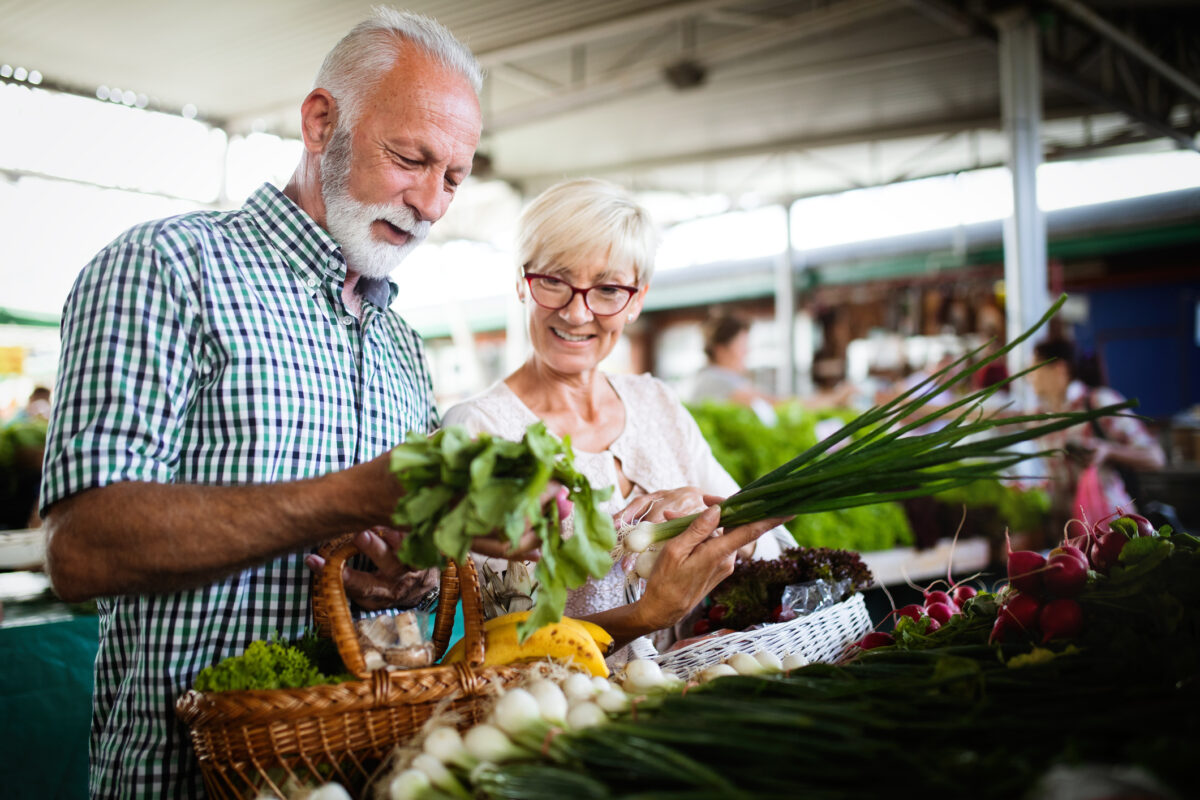Many people think there is nothing wrong with snubbing leftovers or tossing food that’s slightly past its “sell by” date. It’s time for everyone to think again. Statistics posted by the USDA about food waste in the U.S. can be startling: 30 to 40 percent of the American food supply goes to waste, primarily in homes, stores and restaurants. Plus, food waste costs Americans over $161 billion annually.
Why Should You Care About Food Waste?
When you waste food, it’s not just a waste of money—it also causes long-term ecological impact. The resources that go into creating tossed food generate greenhouse gas emissions equal to 42 coal-fired power plants, according to the Environmental Protection Industry.
Plus, when you waste food, it can even cause food prices to rise even higher.
“If everybody bought only the amount of food that they actually ate, need would go down by a fair chunk, which would then push prices downward,” says Brian Roe, PhD, a professor of agricultural marketing and policy at The Ohio State University. “Prices are higher than they otherwise would be because of the higher volume of demand.”
Most Americans would say they’re concerned about food waste, but nearly three-quarters believe that they waste less food than the national average, according to a survey from the Johns Hopkins Center for a Livable Future, according to The National Resources Defense Council. One-third think that they don’t create any food waste at all, reports a Michigan State University poll.
Of course, the goal isn’t perfection—it would be unrealistic to vow you’ll never let another piece of produce go bad.
“We’re going to make a few mistakes, and it’d be crazy expensive to try to get it to zero,” Roe says. “There always be a little bit of food waste, but a lot more than is probably logical right now.”
How to Reduce Your Food Waste
Feeling motivated to do your part in reducing food waste? Here are some steps you can take in your own home.

- Don’t be rigid about “best if used by,” “sell by,” and “use by” dates. A lot of people think that by consuming a product a day after the labeled date, they may get sick. That is not typically the case. These dates are the manufacturers’ estimations for how long the food will taste the freshest. “There are a few food items, such as deli meats and soft cheeses, where the dates might have safety implications,” Roe says. “But anything that’s shelf stable, even milk, which is pasteurized, the dates on there really have no bearing upon the safety level.” The USDA notes that except for infant formula, food is generally safe unless it shows obvious signs of spoilage such as mold or an unusual smell, taste or texture.
- Act like The Iron Chef. Shop your fridge first before you develop your shopping list. Check for items you need to use and build meals around those. There are lots of recipe creator apps and websites where you can enter three strange ingredients to come up with a creative recipe. Escoffier Online is one option.
- Shop small. Will you really be able to eat that giant bag of apples before they rot? Determine your household’s actual needs before buying in bulk. Remember: It’s not a good deal if half of it goes to waste.
- Prepare and cook fresh ingredients after shopping. That way, fresh produce won’t spoil in the refrigerator. Cook smart and double recipes so you can freeze the extra for later.
- Freeze items you know you won’t be able to eat right away. Some items—like overripe bananas—freeze especially well for baking and smoothies. Remember to defrost food in the morning if you know you would like to use it later.
- Restaurant leftovers are there for the asking. Apps like Too Good to Go let you buy meal ingredients at steeply discounted prices directly from stores and restaurants. The food is fresh; it just didn’t sell in time. You can potentially score a great deal and prevent food from filling the landfill. Too Good to Go is available in 13 major cities including New York City, Boston, Washington, D.C., San Francisco, Chicago, Austin and Baltimore.
- Consider composting. Home composting can potentially divert up to 150 kg of food waste per household per year, although it won’t help you save money or prevent wasting food that could have gone to other consumers.
Food Conservation Is a Win-Win for You and the Environment.
Avoiding food waste is good for the environment and natural resources. It’s good for your own personal finances. And it’s good business if you run a restaurant or work in food retail.
Plus, when we all work together to reduce food waste, our efforts can help push down prices and make food more widely available.
“This in turn helps those who are impoverished or hungry and rely upon good deals of the supermarket to be able to feed themselves,” Roe says.







Use Debbie meyer green bags to keep fresh fruits and veggies fresh for many weeks.
I never waste food. Leftovers become soup. I’ve had some different combos but they end up tasting great!
First thing to do is go to cooking school.
When we have food that just isn’t edible for us, it is fed to the chickens. Double savings since it cuts down on chicken feed and the chickens compost it naturally.
Great article. If you want more information on food recycling look into Blessings of Hope. This organization is amazing and is dedicated to feeding hungry people with food that would otherwise end up in a land fill. They are based in Lancaster, PA but also have facilities in Kentucky and their trucks travel the country to pick up food and to distribute food.
VERY worthwhile!
Reminder for me to start composting.
I am a user of many of the subjections in your article. Thanks for the reinforcements. I shop my dry goods cabinet and refrigerator before making my shopping list. Cook large portions ,divide and freeze smaller portions for later .dinners.
I have a container in my freezer where leftover meat, veggies, pasta, etc. are put, no matter how small the amount. Once container is approaching full, I empty in a pot with chicken or veggie broth and make a soup. Usually don’t have to add seasonings because individual items were seasoned when initially cooked. Never the same, always Yummy!!!!
Rotate your food. Put new packages behind the older ones so you use up the older food before it goes bad.